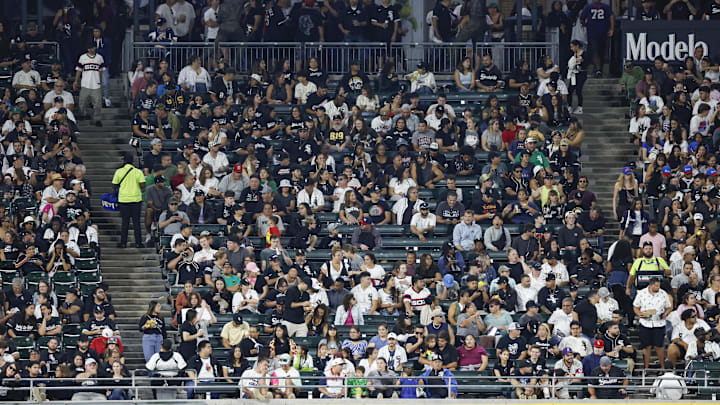If the Chicago White Sox leave the neighborhood they've called home since 1910, it will be bittersweet. Even if they don't move very far. A proposal to build a stadium in a part of Chicago currently dubbed "The 78" has been reported, and if one reads the tea leaves, it appears to be a serious initiative and not just idle talk.
The 78 is a piece of mostly undeveloped land just south of downtown Chicago -- also known as the Loop -- and only a short distance from the Sox's current home at Guaranteed Rate Field.
There are some pros and cons related to a possible Sox move, as one would expect. Here are a few of them.
Pro: The Sox would have the opportunity to have a shiny new venue, and it would likely be nicer than their current stadium.
New ballparks also tend to open up new revenue streams, especially if they're surrounded by retail and restaurants and hotels and such. The Sox often struggle to draw fans and don't currently seem to have too many tangential revenue generators -- the team sometimes acts like a small-market club. On the other hand, would ownership spend any increased revenue from this project on producing a better product on the field?
At least this move would keep the team in town. If they left the Chicago area, fans would be heartbroken. And while a move to, say, suburban Naperville would keep them in-market, it always feels weird saying a team plays in a certain city when the stadium is actually deep into the suburbs. It might be common, and not that big a deal -- no one gets too mad at the Dallas Cowboys playing in Arlington or the New York City football teams playing in New Jersey -- but it's still a nice point of civic pride that all five of Chicago's pro sports teams play, at least at present, within the city limits.
Con: The current stadium is just fine, and not that old.
Indeed, Guaranteed Rate is just a hair over 30 years old. It has flaws, but remodels over the years have improved the fan experience. The upper deck isn't as steep as it once was, for example. The current stadium is generally a pleasant place to watch a game, and it's not clear the Sox need a new stadium. That last bit will become more crucial if the team starts asking for public money.
